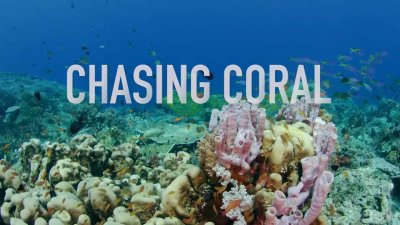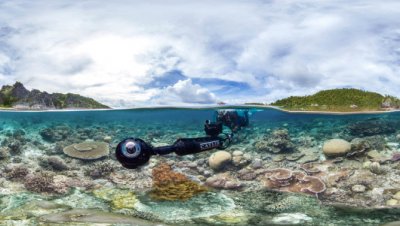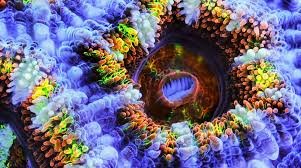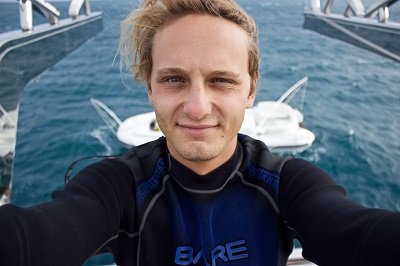- Joined
- Jun 14, 2016
- Messages
- 263
- Reaction score
- 516
After years of being a reef aquarist, in 2006 I accepted a position as a coral reef biology science instructor with a small dive service provider called Beautiful Oceans. Our goal was twofold. One, we thought that if we educated scuba divers about the depth (no pun intended) of reef biology, they may in fact fall further in love with reef ecosystems. That love could express itself in a desire to preserve oceanic bio-diversity. Two, using what was the latest technology then, we could GPS map coral reefs, giving dive charters interactive maps for their clients and allowing scientists to closely map reef decline. While Beautiful Oceans had, a lot going for it, beautiful training materials and access to celebrity oceanic conservationists, the cost of the service was too hefty, and getting dive shops to invest was difficult. For research based firms, such as Florida’s MOTE, the money simply wasn’t there.
As soon as Chasing Coral started, I felt flashbacks to my work as a science instructor. Underwater filmmakers were joining forces with coral reef biologists to chronicle reef decay, and finally show the public the reality of declining reef health. The film follows Richard Vevers, a former advertising executive turned underwater film-maker. Vevers set out to chronicle worldwide reefs on film, paying close attention to the climate change related phenomenon known as bleaching. During filming, he noticed a striking similarity to his work, and that produced for the documentary film Chasing Ice. Chasing Ice documented the loss of worldwide glaciers, and Vevers quickly realized that both filmmaking teams were “chasing” similar climate change related disasters. Vevers reached out to Jeff Orlowski (the director of Chasing Ice) and Netflix’s newest documentary was born.
Orlowski stepped up to direct Chasing Coral, and after partnering with numerous marine scientists, the team stepped out to fully document coral bleaching, perhaps for the first time in history. There are numerous factors that rescue Chasing Coral from the fate of so many environmental documentaries. One, Vevers’ original work was with Catlin, the panoramic camera technology used to record virtual dives for Google Earth. Due to that connection, he automatically had connections with a host of skilled underwater engineers. To document bleaching, those engineers worked together to create a camera system capable of remaining submerged in seawater for long periods of time, and also capable of creating a wireless network that can automatically upload video to the surface. To combat algae growth, the team designed an automatic camera housing wiper system, which functions much like a protein skimmer neck cleaner, wiping away algae build-up and securing a distortion free shot.
Among the engineering team is Zackery Rago, a long-time reef aquarist and self-described coral nerd. Any aquarist will instantly connect with Zack’s love of reef life, most noticeable when he witnesses his first bleaching event, which brings him to tears. A stellar set of engineers wasn’t enough, Vevers also needed scientists on the bleeding edge of reef health. Using mapping data developed by NOAA (National Oceanic and Atmospheric Administration) Vevers and his team identified hot spots, areas of the ocean with sea temperatures rising dramatically above recorded norms. In some instances, sea temperatures around these hot spots breached 87 degrees, a known fatal zone for most corals. After planting a network of underwater cameras on coral reefs around the world, the team waited for their first sets of images.
The film works well for those unfamiliar with coral reefs. While Vevers (who takes a lead role in the film) is a skilled underwater film-maker, he isn’t overtly familiar with coral life. The audience embarks on an education with him, learning intricacies of coral biology from top reef scientists. During those lessons, viewers begin to understand the importance of corals to overall oceanic health, while also learning that globally, over 29% of coral reefs have died. The more that Vevers learns about coral biology, the more connected he becomes with the mission. Overall, the film-maker’s ambition switches from recording virtual dives for Google Earth, to trying to document coral bleaching’s reality, with the hope of fanning the flames of public interest and empathy.
The great mystery surrounding coral bleaching has always been, “how long does it take?” Scientists have been confident for years that they’ve known the cause of large scale bleaching events, rising sea temperatures. For centuries, sea temperatures have been relatively stable, often only fluctuating a few percentage points of a degree. Globally, sea temperatures have been rising on average 3, 4, and 5 degrees, with some areas seeing rises of 8 degrees or more. The impact, corals are no longer able to survive in their native waters, and thus bleach a ghostly white, eventually dying.
As reef keepers, we know precisely what causes bleaching. Within coral tissue lives photosynthetic zooxanthella algae. To maintain coral health, a delicate balance must be maintained, ensuring the zooxanthella don’t grow too quickly, but that they can always photosynthesize and provide the coral with any additional nutrition. When water temperatures become too warm, the micro-algae within coral tissues quits photosynthesizing, and the coral sees it as an invasive micro-organism, like a virus. Quickly the coral animal expels the vital algae, causing its flesh to turn translucent. Soon, the coral is starving, and often within days it is dead. Coral bleaching has consumed massive tracts of reef ecosystems, even leveling much of Australia’s great barrier reef, and quickly wiping out the reef surrounding the Florida Keys. If it continues, scientists estimate that in less than 30 years, all coral reefs worldwide will be dead. Consider that 80% of reef species within the ocean live on a coral reef at some point in their development, and reefs only encompass about 25% of the total world’s oceans. We simply don’t know what an ocean without coral reefs will look like.
To the surprise of both the film-makers and reef scientists, coral bleaching happens at a rapid pace. Once water temperatures rise a few degrees above normal, corals begin to display vivid fluorescent hues, a sort of biological sunblock to deal with the excess heat. Within days, colonies begin to transform into skeletal masses, and less than a week later, microalgae begin to colonize exposed bone. A reef that was teeming just a week ago is now dead.
Chasing Coral documents the reality of climate change, along with its ability to wipe out entire ecosystems nearly overnight. It reminds us of the importance of corals, which built the very ecosystems that allowed life in the ocean to evolve, up until the point that animals first stepped on land. They are in many ways the foundation of life on Earth, and removing them from complex ecosystems could spiral the bio-hierarchy of the planet out of control, leading up to numerous mass extinctions.
Chasing Coral reminds us that it’s quite possible someday, the world’s only corals will exist in an aquarium. This would be a tragedy, as hundreds (if not thousands) of invertebrate and fish species simply cannot survive without coral reefs. As the film points out, when the oceans change, life on Earth changes. In an age when American leadership fails to recognize climate science as legitimate, and promises to re-ignite industries that accelerate climate change, such documentation of the devastation wrought by excess carbon is more important than ever.
Last edited by a moderator:






















